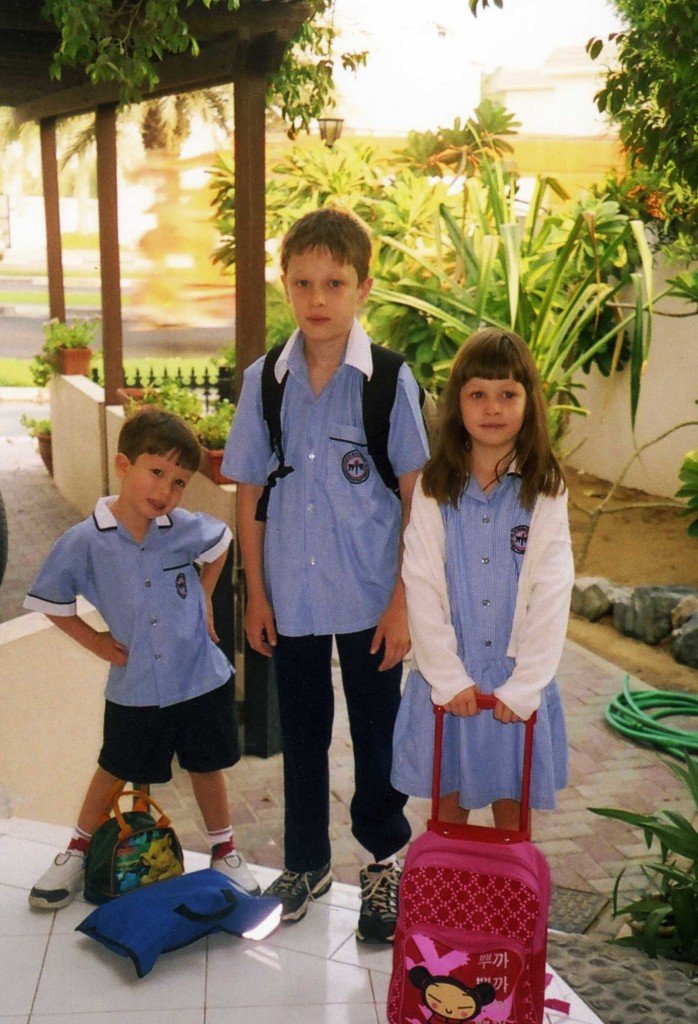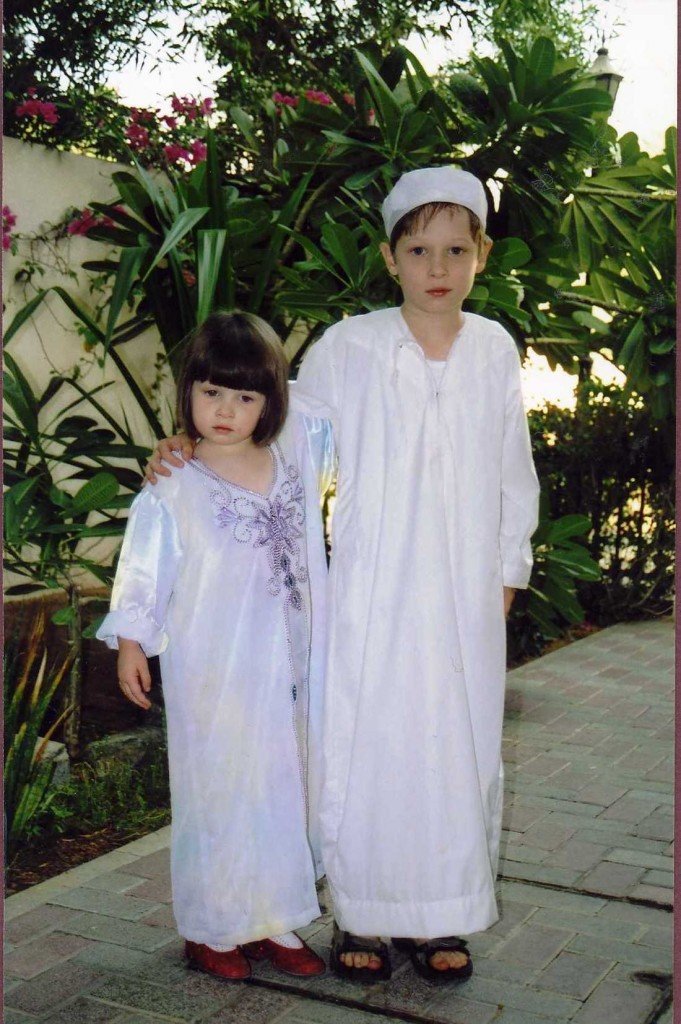Raising Arabic-Speaking Children (Part 3)
Earlier, I recounted our attempts to raise bilingual children in Seattle. Next, I depressed readers with the story of our first four years in Dubai.
So, in 2005 we transferred our three children to an international school, where they blended right into the diverse student population. At this school there were more Arabic options to choose from. The Arabic classes were divided into Arabic A (First Language Arabic) and various levels of Arabic B (Second Language Arabic).
For years, other mothers asked me, “Is your child in Arabic A or Arabic B?”
Of course, Arabic A was the high-status answer, and we fell straight into this mindset. So for several years we kept our children in Arabic A—even though the fit was all wrong. By this time, my husband was speaking mostly English with our children, yet he clung to this notion of Arabic A. He could not accept the idea of our children speaking Arabic as a second language—even though they hardly spoke it at all.
Eventually we came to our senses and gradually moved our children into the appropriate level of Arabic B. The pressures of Arabic eased and we all felt better. Meanwhile, I noticed many Arab children with two Arabic-speaking parents were also in Arabic B. They were wrestling with the same language issues that plagued us!
In the mean time, we had other educational matters to deal with—writing issues, math issues, behavior issues… At fifth grade, each child started French. (More complications!) By seventh grade, our son had twelve separate subjects.
For a while, Arabic turned into just another subject—one more class among many. We got busy with our hectic family life, and when we weren’t looking, our children’s Arabic started to improve.
New tutors made a difference. For our oldest son, we hired a youthful, energetic man. Our son admired him and now wanted to do well at Arabic. For our daughter, one of her cousins offered to tutor her. And so, our daughter, who year after year refused to speak Arabic, gradually started to do well in Arabic class.
Flash forward to the present. Our children are all doing much better in Arabic. (Well, two out of three.) Let me start with our youngest (age 9), who is still in the throes of I-hate-Arabic. I refer to him as our “Wild Card” because we still don’t know where his language will go. He spent virtually his entire life in Dubai, and yet he’s made the least progress in Arabic. He does speak “Playground Arabic” with his cousins, but he still has a long way to go.
As for our daughter (age 12), there has been a transformation. At her most recent parent/teacher conference, the young Arabic teacher told me, “She’s confident speaking Arabic. She raises her hand often. Her speaking skills are good. She helps her classmates.”
Really? I leaned forward and stole a peak at the teacher’s notes. Yes, she was talking about our daughter—our daughter!—who had refused to say a word of Arabic for all those years.
Next, the teacher told me about a change in the curriculum. The new textbooks now have an “Expression” section in each chapter. Students are now required to express themselves in both spoken and written Arabic. The teacher told me that she was trying to get the whole Arabic department on board with this new approach.
At last! A shift in Arabic-teaching methodology! I predict that if there’s to be a true change, it will be this next generation of Arabic teachers—dynamic and open-minded teachers like our daughter’s—who will propel it.
Finally, our oldest son: He’s nearly 16 and nearly 6 feet tall. He now speaks Arabic almost fluently (albeit with a limited vocabulary). At some point in the last two years, a switch flipped inside his head. We are not sure what triggered this; even he’s not sure. I suspect it was prompted by multiple factors: family trips to Jordan and the West Bank, participation in pro-Palestinian rallies, and association with his Arabic-speaking peers who think it’s good to speak Arabic. (Peer pressure in our favor!) Our oldest son now speaks Arabic every chance he gets—with relatives, salespeople, falafel vendors, waiters at Chili’s… Once I asked him what language he spoke at the homes of his Emirati friends.
“Arabic, of course,” he told me. “I don’t want them to think I’m a dumb white kid.”
So, there you have it. In the end, what drove his desire to speak Arabic was his strong personal identity—his desire to be Arab and not “a dumb white kid.”
Meanwhile, my husband believes it was due to all those Arabic storybooks he read to our son when he was little. If that is the case, then he better get busy reading to our nine-year-old. There’s still time!



